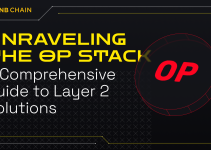
Binance Smart Chain is expected to undergo a scheduled hard fork upgrade at block height 13,082,000. The current block generation speed forecasts this to occur around November 30 at 08:00 AM UTC.
Validators and full node operators on the mainnet are recommended to upgrade their software to version v1.1.5 by November 30.
1. What is Bruno Upgrade v1.1.5?
BSC became one of the most active blockchains with more than 2 million daily active addresses and with a peak of 14 million transactions processed in 24 hours (ATH from Nov 17). This unexpected growth tested the limits of the network and we acknowledge that there are existing challenges on the full node synchronization.
With the progressive decentralization of the BSC community, v1.1.5 upgrade is a hard fork release that introduces the real-time burning mechanism into the economic model of BSC with the aim to introduce a new burning process of BNB, and speed up the full node sync by more than 60%.
This upgrade will introduce the previously announced BEP-95 with a real-time burning mechanism.
2. What happens during a network upgrade?
Logic changes will occur at the block height of 13,082,000. After the activation of this upgrade, the blockchain will be able to handle a series of new features and eliminate existing bugs.
3. How does this upgrade affect me?
This upgrade has no effect on the regular BSC users and developers, other than the introduction of the real-time burning mechanism. This upgrade requires the attention of full node operators (validators).
3.1 As a full node operator
This is a groundbreaking release and we strongly encourage you to switch to v1.1.5. The instructions below should be completed before the hard fork.
- If your node is already synced with the network, please download and compile to the latest version.
- Stop the geth process and restart it with v1.1.5.
Tips:
- If you’re experiencing issues running a full node, please follow this reference: https://github.com/binance-chain/bsc/issues/502
- We also encourage you to join the node operator Telegram group to get more support. Click here to join.
3.2 What will happen if I forget to upgrade my full node in time?
If you cannot upgrade your software, you cannot sync with the upgraded Binance Smart Chain peer/validator nodes. You will not be able to connect or send transactions.
To recover:
4. Important Upgrades in 1.1.5
4.1 Real-Time Burning Mechanism BEP95
The burning of gas fees will speed up the burning process of BNB, which will make BSC more decentralized and improve the intrinsic value of BNB in the long run.
It includes two parts:
- A fixed ratio of the gas fee collected by the validators will be burned in each block.
- The burning ratio can be governed by BSC validators.
4.2 Diff Sync Protocol: Speed up node sync BEP-93
The diffsync protocol in this release is rolled out as a stable feature. Diff sync improves the syncing speed by approximately 60%~70% according to test. All full nodes are encourage to enable it by adding –diffsync in the starting command. Refer to BEP93 for more details.
4.3 Improvements and Bug Fix
- #536 get diff accounts by replaying block when diff layer not found
- #527 improve diffsync protocol in many aspects
- #493 implement fast getDiffAccountsWithScope API
- #472 add hit and miss metrics for contract code bitmap cache
- #509 Fixed graceful shutdown bug.
- #491 Fixed prefetcher related bugs
4.4 Improved CI/CD
Continuous integration flow is improved on UnitTest, IntegrationTest and Build Tests. For further details refer to PR #473.
Appendix: What is a hard fork upgrade?
Forks are used in the blockchain network to introduce new software changes (upgrades) to the network protocol. These are of two types – soft and hard fork. While soft forks are for tightening the rules, backward compatible, and old nodes that don’t upgrade are still allowed to accept new blocks, a hard fork is its opposite. Hard forks are for expanding the rules, are not backward compatible, and old nodes that do not upgrade cannot accept new blocks. In the BSC ecosystem, to continue making blocks a hard fork requires +1/2 validators to successfully upgrade to the new release. Any existing full node in the network that doesn’t upgrade to the hard fork release, after the hard fork block height cannot receive and execute further blocks.


